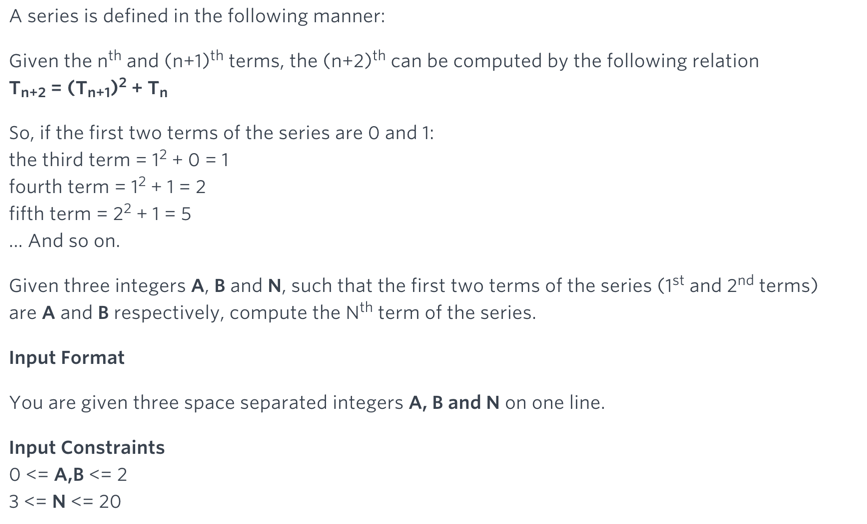Purpose
This question comes from a HackerRank problem called Fibonacci Modified. I think I have coded a valid solution, but would like feedback about my approach, implementation, and of course, any errors / edge cases that I may have missed.
Task
Implementation
public class FibonacciModifiedImpl implements FibonacciModified {
@Override
public BigInteger calculateNextTerm(final BigInteger currentTerm, final BigInteger lastTerm) {
if (-1 == lastTerm.compareTo(BigInteger.ZERO) ) {
throw new IllegalArgumentException("last term must be non-negative");
}
if (-1 == currentTerm.compareTo(lastTerm)) {
throw new IllegalArgumentException("current term must be greater than or equal to last term");
}
final BigInteger squaredTerm = new BigDecimal(Math.pow(currentTerm.doubleValue(), 2)).toBigInteger();
return squaredTerm.add(lastTerm);
}
@Override
public BigInteger calculateNthTerm(final BigInteger firstTerm, final BigInteger secondTerm, final int n) {
if (-1 == firstTerm.compareTo(BigInteger.ZERO) ) {
throw new IllegalArgumentException("first term must be non-negative");
}
if (-1 == secondTerm.compareTo(firstTerm)) {
throw new IllegalArgumentException("second term must be greater than or equal to last term");
}
if (n < 1) {
throw new IllegalArgumentException("number of terms must be greater than 0");
}
switch (n) {
case 1: {
return firstTerm;
}
case 2: {
return secondTerm;
}
default: {
int counter = 2;
BigInteger currentTerm = secondTerm;
BigInteger lastTerm = firstTerm;
while (counter < n) {
BigInteger nextTerm = calculateNextTerm(currentTerm, lastTerm);
lastTerm = currentTerm;
currentTerm = nextTerm;
counter++;
}
return currentTerm;
}
}
}
}

